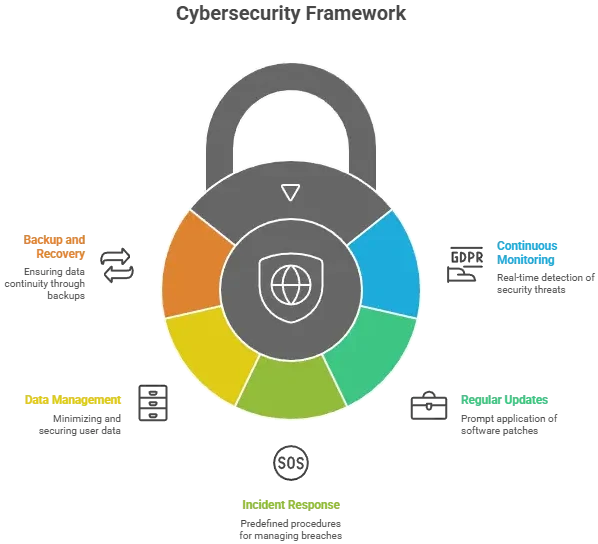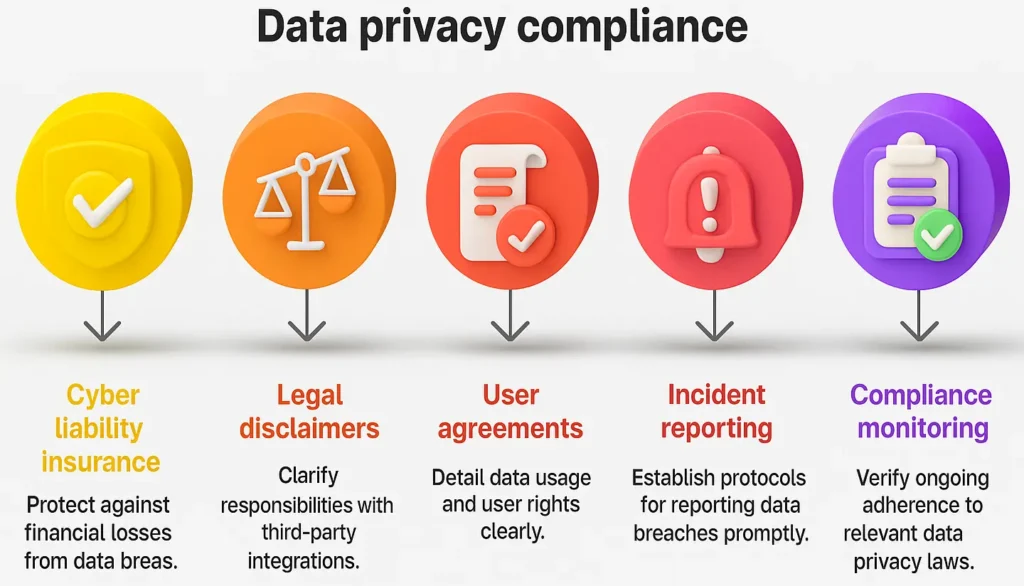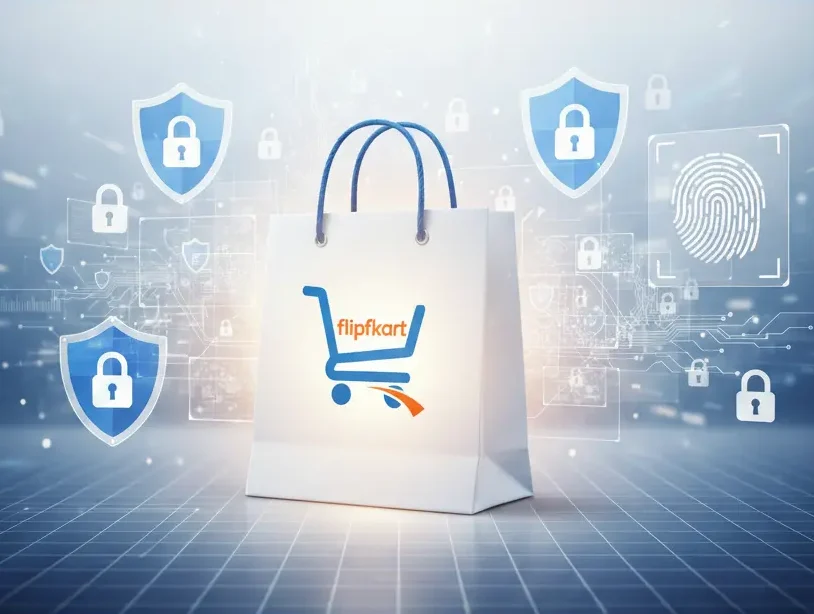You’ve heard the horror stories — hacked accounts, stolen customer data, payment frauds, and apps vanishing overnight. In today’s digital marketplace, security isn’t a luxury; it’s survival. For businesses launching their own white-label Flipkart app, the question isn’t just how fast you can go live — it’s how safe your platform will be once users start transacting.
As online shopping continues to skyrocket in 2025, security breaches have become more sophisticated. Cybercriminals now target white-label apps that lack proper encryption, compliance, or maintenance. The result? Massive losses, reputational damage, and regulatory penalties.
This guide will give you an honest, data-backed look at how secure white-label Flipkart apps really are — separating myths from facts — and showing how you can protect your business, your customers, and your brand. You’ll also learn how Miracuves ensures enterprise-level safety in every app it builds, from compliance to 24/7 monitoring.
Understanding White-label Flipkart App Security Landscape
When it comes to white-label Flipkart app solutions, many businesses assume that rebranding an existing eCommerce framework automatically guarantees safety. In reality, white-label security depends entirely on how well the app’s infrastructure, data handling, and maintenance are managed after deployment.
What white-label security actually means
White-label security refers to the security measures embedded in a pre-built platform that can be customized and rebranded for another business. While the base code is shared across multiple clients, every deployment can (and should) have unique configurations, encryption keys, and compliance layers.
Common security myths vs reality

Why people worry about white-label apps
Business owners often fear losing control over backend code, data handling, or compliance visibility. These concerns are valid, especially when providers skip documentation or fail to meet global security benchmarks like ISO 27001 or SOC 2 Type II.
Current threat landscape for Flipkart-type platforms
Ecommerce apps handle sensitive data — customer profiles, payment credentials, order histories, and delivery locations. The most common 2025 threats include:
- API abuse and credential stuffing
- Cross-site scripting (XSS) and SQL injection
- Payment gateway spoofing
- Cloud misconfigurations
- Data scraping and unauthorized data sharing
Security standards in 2025
Modern security compliance now includes continuous vulnerability testing, advanced encryption standards (AES-256), AI-based fraud detection, and automated patch pipelines. According to recent data, over 43% of eCommerce data breaches in 2024 were due to insecure third-party integrations and outdated APIs.
Real-world statistics
- 72% of retail apps experienced at least one security incident in the past 12 months.
- Average financial loss per breach exceeded $4.5 million (IBM 2025).
- 60% of small eCommerce brands shut down within 6 months of a major data breach.
By understanding these dynamics, businesses can separate marketing promises from real technical protection — and make smarter decisions before launching their own white-label Flipkart app.
Read more : – Top 5 Mistakes Startups Make When Building a Flipkart Clone
Key Security Risks & How to Identify Them
White-label Flipkart apps bring great speed to market, but without a proper risk assessment, they can open doors to serious security issues. Understanding these risks early allows businesses to build with confidence rather than react to damage later.
Data Protection & Privacy
The most sensitive area for any eCommerce platform is user data. Your white-label Flipkart app handles personal information, payment details, and even live delivery locations.
Key concerns include:
- Exposure of customer records due to weak encryption.
- Payment gateway vulnerabilities leading to fraud.
- Location tracking misuse or data sharing without consent.
- Non-compliance with privacy laws such as GDPR, CCPA, or India’s DPDP Act.
Technical Vulnerabilities
Even the most polished white-label codebases can hide flaws if not maintained properly.
Common risks include:
- Insecure code snippets or outdated libraries.
- Weak server-side configurations allowing unauthorized access.
- Poorly designed APIs exposing user or transaction data.
- Third-party plugins that bypass security checks.
Business Risks
Security failures are not just technical—they can destroy credibility and invite legal trouble.
Risks to consider:
- Legal liability for data exposure.
- Reputation loss leading to customer churn.
- Financial losses from fraud or regulatory fines.
- Operational downtime during breach recovery.
Risk Assessment Checklist
- Is user data encrypted during transmission and storage?
- Does the provider perform regular penetration testing?
- Are GDPR and PCI DSS compliance measures in place?
- Is there an incident response plan defined and documented?
- How often are system patches and API updates released?
Identifying these risks before launch ensures your white-label Flipkart app remains both scalable and trustworthy from day one.
Security Standards Your White-label Flipkart App Must Meet
Launching a white-label Flipkart app is not only about features and performance — it’s about meeting the right security standards that protect both business data and user trust. Compliance with recognized certifications and protocols is now a must, not an option.
Essential Certifications
To establish credibility and minimize risks, your white-label Flipkart app should align with globally accepted security standards:
- ISO 27001 Compliance: Ensures a systematic approach to managing sensitive data through strict access controls and regular audits.
- SOC 2 Type II: Demonstrates that your platform’s data handling, storage, and privacy controls meet enterprise-level standards.
- GDPR Compliance: Essential for apps operating in or serving users within the EU; mandates transparency and user consent for all personal data usage.
- HIPAA (if applicable): Required if your app processes any health-related data, ensuring medical information confidentiality.
- PCI DSS: Critical for handling credit and debit card transactions securely with proper encryption and tokenization.
Technical Requirements
Beyond certifications, certain technical measures define the strength of your app’s defense.
- End-to-end data encryption using AES-256 or stronger.
- Secure authentication layers (2FA or OAuth 2.0) to prevent unauthorized access.
- Regular security audits and automated patch management cycles.
- Routine penetration testing by certified ethical hackers.
- SSL certificates on all network layers for encrypted data transmission.
- Secure API design to prevent injection and interception vulnerabilities.
Security Standards Comparison Table
| Security Standard | Purpose | Required For | Key Benefit |
|---|---|---|---|
| ISO 27001 | Information Security Management | All businesses | Establishes systematic data protection |
| SOC 2 Type II | Service Organization Control | SaaS / cloud-based apps | Proves operational and privacy integrity |
| GDPR | Data Privacy Compliance | Global apps (esp. EU) | Protects personal and consent-based data |
| PCI DSS | Payment Card Security | E-commerce transactions | Prevents card fraud and payment breaches |
| HIPAA | Healthcare Data Security | Health-related modules | Ensures confidentiality of medical data |
Meeting these standards ensures your white-label Flipkart app can operate confidently across international markets without risking non-compliance or user trust.
Read more : – Best Flipkart Clone Scripts in 2025: Features & Pricing Compared
Red Flags – How to Spot Unsafe White-label Providers
Choosing the right development partner is as important as the technology itself. Many businesses fall into traps by selecting low-cost white-label Flipkart app providers who cut corners on security. Spotting red flags early can save your business from massive losses later.
- No proper documentation explaining security measures or data handling protocols.
- Extremely cheap pricing without transparent justification.
- Absence of compliance certifications such as ISO 27001, SOC 2 Type II, or GDPR adherence.
- Outdated technology stacks that lack modern encryption or real-time monitoring.
- Poor code quality with reused components across multiple clients.
- No defined security update or patching policy after deployment.
- Lack of automated backup and disaster recovery systems.
- No professional liability or cybersecurity insurance coverage.
Evaluation Checklist
Before finalizing a provider, ensure these essentials are verified and documented:
- Request a complete security architecture document detailing encryption, access control, and data storage policies.
- Ask for proof of compliance certifications or third-party security audits.
- Verify that the provider performs penetration testing at least twice per year.
- Confirm whether 24/7 security monitoring is available post-deployment.
- Check if data backups are performed daily and stored in secure, redundant servers.
- Evaluate whether they use version control and code review systems to prevent injection risks.
- Inquire about incident response procedures — how quickly can they react to a breach?
- Review insurance coverage that protects you in case of a cybersecurity incident.
By conducting this due diligence, you ensure that your white-label Flipkart app isn’t just operational — it’s defensible. A secure provider not only safeguards your customers’ trust but also your long-term business continuity.
Best Practices for Secure White-label Flipkart App Implementation
Security doesn’t stop once your app is built — it starts there. To make your white-label Flipkart app secure from day one, you need a clear, actionable plan covering both pre-launch and post-launch phases. These practices help prevent threats and ensure your app stays compliant over time.
Pre-launch Security
Before deployment, every line of code and every server configuration must pass strict checks.
- Conduct a comprehensive security audit of your entire app, including APIs, admin panels, and databases.
- Enforce code reviews to eliminate weak scripts, reused dependencies, or unverified plugins.
- Perform infrastructure hardening by securing hosting environments, firewalls, and access controls.
- Verify compliance with GDPR, PCI DSS, and other applicable standards before going live.
- Implement staff training programs so your internal team understands best security practices for operations and maintenance.
Post-launch Monitoring
After launch, continuous vigilance keeps your app protected as threats evolve.
- Enable 24/7 security monitoring with real-time alerts for intrusion or data leaks.
- Schedule regular updates and patches to address new vulnerabilities.
- Develop a clear incident response plan with defined roles and response timelines.
- Maintain structured user data management, ensuring consent-based access and deletion rights.
- Set up automated backups and disaster recovery systems in geographically redundant locations.
Security Implementation Timeline
- Week 1–2: Initial risk assessment and code review.
- Week 3–4: Infrastructure hardening, encryption setup, and compliance verification.
- Week 5–6: Security testing (penetration and API).
- Week 7–8: Final audit, monitoring system setup, and pre-launch checks.
- Post-launch: Continuous monitoring, monthly audits, and quarterly penetration tests.
Following these practices ensures your white-label Flipkart app operates smoothly, scales securely, and meets enterprise-grade expectations.
Legal & Compliance Considerations
Building a white-label Flipkart app isn’t just about technology — it’s about adhering to the legal frameworks and privacy regulations that govern how user data is collected, stored, and used. In 2025, compliance has become a cornerstone of trust and brand reputation.
Regulatory Requirements
Each region enforces its own set of rules for data privacy, user consent, and business accountability.
- Data Protection Laws by Region:
- European Union: General Data Protection Regulation (GDPR) mandates transparency, consent-based data usage, and the right to data erasure.
- United States: State-level laws like the CCPA (California) and CPRA regulate consumer privacy rights and data-sharing disclosures.
- India: The Digital Personal Data Protection (DPDP) Act 2023 requires companies to manage user data responsibly and ensure explicit consent before processing.
- Industry-specific Regulations: Payment data falls under PCI DSS; apps dealing with personal identification or health data must also comply with HIPAA or similar frameworks.
- User Consent Management: Ensure opt-in consent is clearly collected and stored. Every user should have the right to access, modify, or delete their information.
- Privacy Policy Requirements: Clearly explain how data is collected, used, stored, and shared. Policies should be updated regularly to reflect changing legal expectations.
- Terms of Service Essentials: Include clauses on acceptable usage, liability limits, and dispute resolution to protect both your business and users.

Compliance Checklist by Region
| Region | Key Regulation | Enforcement Authority | Core Compliance Focus |
|---|---|---|---|
| EU | GDPR | European Data Protection Board | Data privacy and consent |
| USA | CCPA/CPRA | State Privacy Commissions | Consumer data rights |
| India | DPDP Act 2023 | Data Protection Board of India | Explicit user consent |
| Global | PCI DSS | PCI Security Standards Council | Payment data security |
By meeting these obligations, you don’t just protect your app legally — you reinforce user confidence, positioning your white-label Flipkart app as a secure and compliant marketplace in every region.
Read more : – How to Choose the Best Flipkart Clone Developer
Why Miracuves White-label Flipkart App is Your Safest Choice
When it comes to white-label Flipkart apps, security and compliance can define the difference between a scalable business and a legal nightmare. Miracuves goes far beyond basic app development — it delivers enterprise-grade protection, designed for brands that value trust, transparency, and long-term growth.
Miracuves Security Advantages
- Enterprise-grade security architecture built with layered defense models, including encryption, firewall protection, and role-based access control.
- Regular security audits and certifications performed by independent cybersecurity firms to maintain ISO 27001 and SOC 2 Type II compliance.
- GDPR and CCPA compliant by default, ensuring lawful data collection, storage, and user consent mechanisms across all regions.
- 24/7 security monitoring that tracks threats in real-time with automated alerts and proactive mitigation.
- Encrypted data transmission using SSL/TLS protocols for all user interactions and backend communications.
- Secure payment processing integrated with PCI DSS-certified gateways to safeguard financial data.
- Regular security updates and patches ensuring no outdated dependencies or vulnerabilities remain unaddressed.
- Insurance coverage included that protects your business from unforeseen cyber incidents or operational risks.
With Miracuves, your white-label Flipkart app isn’t just another rebranded marketplace — it’s a secure, compliant digital ecosystem ready for enterprise-scale operations.
Conclusion
Don’t compromise on security. Miracuves white-label Flipkart app solutions come with enterprise-grade protection built-in from day one. Our 600+ successful projects have maintained zero major security breaches.
Get your free security assessment today and see why businesses across the world trust Miracuves for safe, compliant, and high-performance platforms.
A secure white-label Flipkart app is not just about encryption or audits; it’s about maintaining user trust, ensuring compliance, and proving reliability in every transaction. When customers feel safe, they stay longer, spend more, and become loyal advocates for your brand.
With Miracuves, you’re not just getting a ready-made eCommerce app — you’re getting a security-first partner committed to protecting your business every step of the way.
FAQs
1. How secure is a white-label Flipkart app compared to custom development?
If developed by a certified provider like Miracuves, a white-label app can be equally secure or even more reliable due to standardized frameworks and recurring audits.
2. What happens if there’s a security breach?
A defined incident response plan activates immediately—data isolation, user notifications, and mitigation protocols minimize impact.
3. Who is responsible for security updates?
With Miracuves, the provider handles ongoing updates, patches, and compliance reviews so you remain protected automatically.
4. How is user data protected?
All personal and transaction data is encrypted during storage and transfer, ensuring end-to-end security.
5. What certifications should I look for?
ISO 27001, SOC 2 Type II, GDPR, and PCI DSS compliance are essential benchmarks.
6. Can white-label apps meet enterprise security standards?
Yes, when built with proper encryption, audits, and certified infrastructure, they meet or exceed enterprise-grade requirements.
7. How often should security audits be done?
Quarterly audits and continuous monitoring are recommended for eCommerce platforms.
8. What’s included in Miracuves’ security package?
Full-stack encryption, 24/7 monitoring, API protection, compliance coverage, and insurance against cyber incidents.
9. How does Miracuves handle international data protection?
All apps are configured to meet GDPR, CCPA, and India’s DPDP Act automatically.
10. What insurance is required for app security
Cyber liability and technology errors & omissions (E&O) insurance are key for financial protection.
Related Articles :








